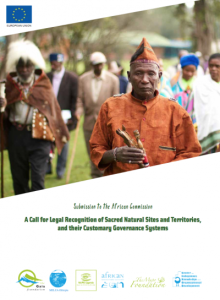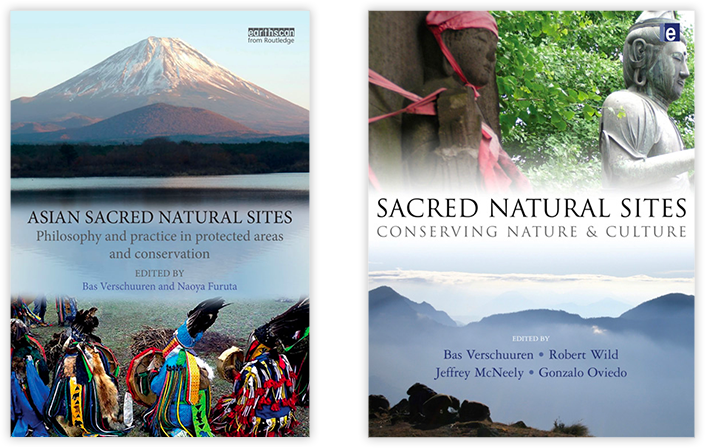
»Razpis za pravno priznanje svetih naravnih območij in ozemelj, and their Customary Governance Systems” was released by Gaia Foundation and African Biodiversity Network. Poročilo vsebuje Afriško komisijo za človeka in narode’ Rights with persuasive and substantive arguments relating to a core element of original African traditions and calls for a decisive policy and legislative response on the matter. Read the full report or visit the website of Fundacija Gaia.
The report is based on a statement, by custodian communities from six African countries and provides a body of legal and policy support for the custodians’ statement, drawn both from the African Charter as well as from international and domestic law.
Sveto naravne znamenitosti so vir življenja. Sveto naravne znamenitosti so od kod prihajamo, srce življenja. To so naše korenine in naš navdih. We cannot live without our sacred natural sites and we are responsible for protecting them. Vir: Skrbniki’ Izjava.
It reminds us that the African Charter commits member states to respect and maintain plural legal systems, and recommends that African countries should recognise a priori legal systems as part of their commitment to a proud African identity, to better navigate a development path where the integrity and heritage of the continent is maintained.
Key points of the report:
 Sacred natural sites play a critical role in protecting biodiversity, essential for building climate change resilience.
Sacred natural sites play a critical role in protecting biodiversity, essential for building climate change resilience.- Custodian communities, of sacred natural sites who maintain customary governance systems play an essential role in preserving the traditional values of Africa.
- Sacred natural sites are the bedrock of customary governance systems require legal protection.
- Plural legal systems include customary governance systems and form an essential component of respecting the essence of Africa,
- Sacred natural sites and territories should be recognised as no-go areas for mining and other destructive or extractive activities.
The report also calls for the recognition and protection of sacred natural sites from any form of destruction – including mining and land grabbing – as a prerequisite for realising African peoples’ inalienable rights enshrined in the Africa Charter, including the right to hold and practice traditional morals, values and culture. A discussion of global precedents, Africa’s plural legal systems and case studies from Benin, Ethiopia and Kenya are also included.
Vir: adapted from Fundacija Gaia.






